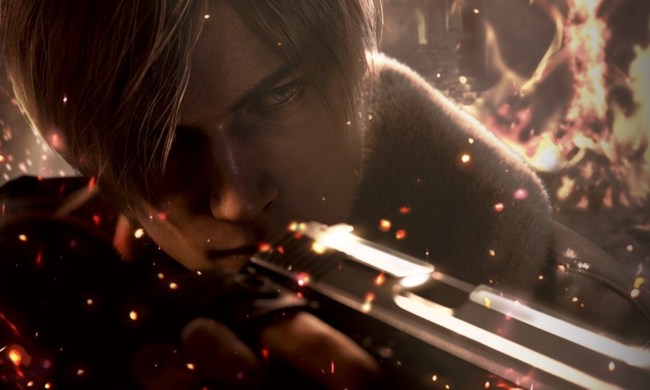The upcoming Resident Evil 0: HD Remaster upgrades the Nintendo GameCube version of Resident Evil 0 with more detailed character models and a widescreen presentation. While Resident Evil 0 first launched as a GameCube exclusive, the game’s origins are actually tied to Nintendo’s previous console, the Nintendo 64.
Resident Evil 0 was originally envisioned as a Nintendo 64 title, taking advantage of the cartridge-based console’s unique strengths. CD-ROM consoles at the time were hampered by slow load speeds; the earliest Resident Evil games used lengthy door-opening animations to mask the loading of new areas as players progressed from room to room.
Knowing that load speeds on the Nintendo 64 would be significantly faster or nonexistent compared to CD-ROM consoles, the development team behind Resident Evil 0 devised a “partner zapping” mechanic that defined the game’s storyline. Players in Resident Evil 0 swap between the game’s starring characters in order to solve puzzles and progress through zombie-filled areas. The Nintendo 64’s hardware would have ensured seamless transitions whenever players switched characters.
As development progressed, storage space became an issue for the team, resulting in the abandonment of the Nintendo 64 version and the creation of the GameCube edition that would later hit store shelves. The only Resident Evil game to premiere for Nintendo’s final cartridge-based console was an N64 port of Resident Evil 2, released in 1999.
Capcom’s newly unearthed Nintendo 64 footage of Resident Evil 0 shows that development of the game’s initial train areas had progressed significantly. Several pre-rendered backdrops are present, and the in-progress version even features English-language voice acting. Dialog was later rerecorded for the GameCube release, and a massive upgrade in graphical detail meant that the team had to re-render backgrounds from scratch.
While the Nintendo 64 version of Resident Evil 0 never saw the light of day, a visually remastered port of the GameCube edition is due to hit the PlayStation 4, Xbox One, PS3, Xbox 360, and PC platforms in 2016.

